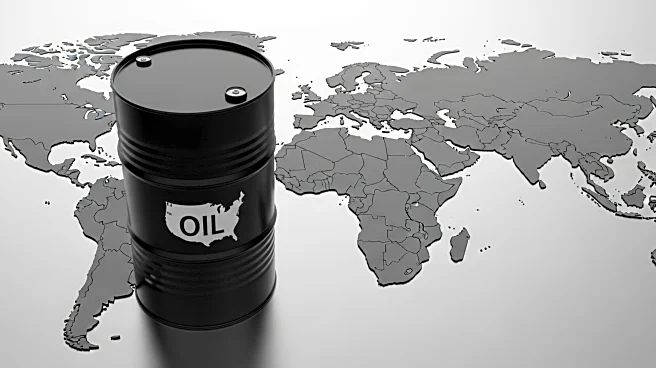What's Happening?
Oil prices have remained stable following the U.S. Treasury Department's announcement of new sanctions targeting individuals involved in exporting Iranian crude disguised as Iraqi crude. Brent crude is trading at $68.93 per barrel, while West Texas Intermediate is at $65.42 per barrel. The sanctions aim to disrupt Iran's oil revenue stream, which the U.S. believes funds attacks against the U.S. and its allies. Additionally, the U.S. is considering trade measures against Brazil for its purchase of Russian diesel. Analysts expect a decline in U.S. oil inventories, with OPEC+ set to meet this weekend to discuss production levels.
Why It's Important?
The U.S. sanctions are part of broader efforts to curb Iran's ability to generate revenue from oil exports, which could impact global oil markets and geopolitical dynamics. The stability in oil prices suggests that the market has absorbed the news without significant disruption. However, the potential trade measures against Brazil and the upcoming OPEC+ meeting could influence future market conditions. The sanctions reflect ongoing tensions between the U.S. and Iran, with implications for international trade and energy security.
What's Next?
OPEC+ is expected to maintain current production levels, but there is a risk of production cuts if the anticipated surplus is not as large as expected. The U.S. may proceed with trade measures against Brazil, which could affect bilateral relations and trade dynamics. The oil market will continue to monitor inventory reports and geopolitical developments, with potential adjustments in production and pricing strategies.









